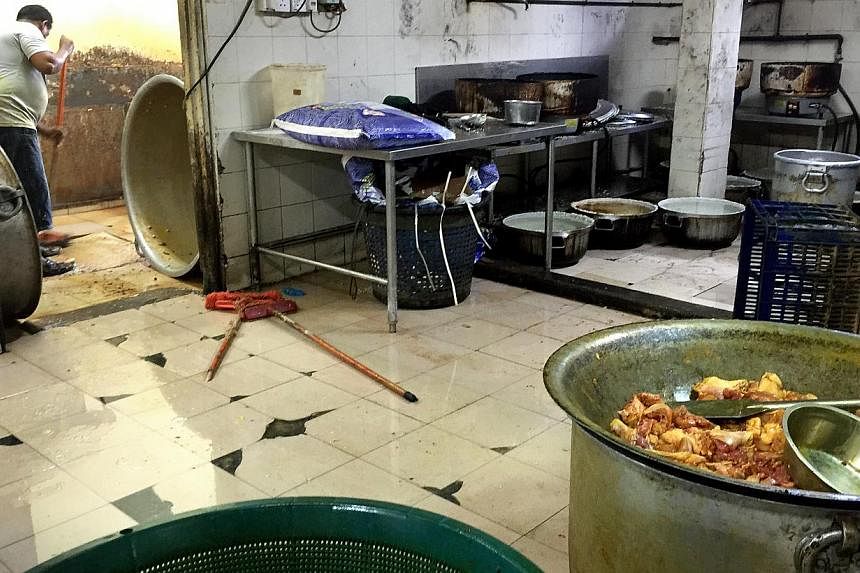SINGAPORE - Over nine in 10 Bangladeshi migrant workers here are given unclean and unhygienic food to eat from caterers, a new survey has found.
Most also complained that they do not get enough food, according to a survey of 500 workers led by a National University of Singapore (NUS) research centre.
"In our research we thought salary disputes was the main thing they faced, but through talking to the workers it turned out that food was a bigger problem," said Professor Mohan J. Dutta, director of the Center for Culture-Centred Approach to Research and Evaluation (Care), speaking at a media conference on Thursday.
"That food can be so integral to health can be something so simple but easily overlooked."
The two-year research project funded by an NUS grant also saw a month-long awareness campaign launched on Thursday to highlight the food issues migrant workers face. This includes a television commercial, bus and MRT ads and a 10-minute documentary.
One issue Prof Dutta and his team found over the course of their two-year project was that despite clear regulations on how long food can be stored and how it should be labeled, many packets of food did not have labels.
"Workers mentioned falling sick from eating the food," he said, adding that many workers reported food meant for lunch being prepared by companies 12 hours earlier.
The workers surveyed were contacted at MRT stations, Little India, grocery stores, dormitories and through migrant worker group HealthServe, which partnered Care in the project.
Separately, a survey by migrant worker group TWC2 of 195 maids found that four in 10 of those who did not get a weekly day did not receive payment in lieu. Some 20 respondents had no days off at all.
The survey was conducted from July 2013 to October 2014, after it became mandatory at the start of 2013 for employers to give maids one rest day a week or payment in lieu.
In its report, TWC2 made several recommendations to the Government, including stepping up random checks on employers to enforce the weekly day off legislation.
It also recommended giving maids the same provisions as those under the Employment Act so that they are entitled to a full 24-hour rest period each week and to double their daily wage as compensation for working on their day off. The survey found that the average compensation maids received, if they did receive any, was $17.50, or around one day's pay.


